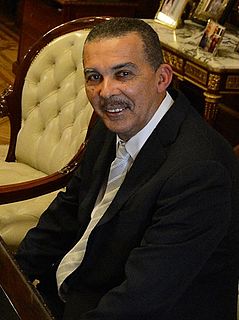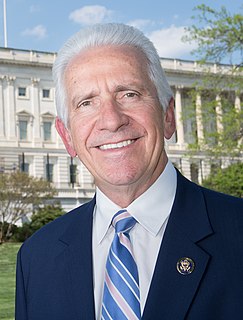A Quote by Zbigniew Brzezinski
The momentum of Asia's economic development is already generating massive pressures for the exploration and exploitation of new sources of energy and the Central Asian region and the Caspian Sea basin are known to contain reserves of natural gas and oil that dwarf those of Kuwait, the Gulf of Mexico, or the North Sea.
Quote Topics
Related Quotes
Moreover, they [the Central Asian Republics] are of importance from the standpoint of security and historical ambitions to at least three of their most immediate and more powerful neighbors, namely Russia, Turkey and Iran, with China also signaling an increasing political interest in the region. But the Eurasian Balkans are infinitely more important as a potential economic prize: an enormous concentration of natural gas and oil reserves is located in the region, in addition to important minerals, including gold.
This much is certain... No initiative put in place starting today can have a substantial effect on the peak production year. No Caspian Sea exploration, no drilling in the South China Sea, no SUV replacements, no renewable energy projects can be brought on at a sufficient rate to avoid a bidding war for the remaining oil.
Americans once believed that their prosperity and way of life depended on having assured access to Persian Gulf oil. Today, that is no longer the case. The United States is once more an oil exporter. Available and accessible reserves of oil and natural gas in North America are far greater than was once believed. Yet the assumption that the Persian Gulf still qualifies as crucial to American national security persists in Washington. Why?
As much as with increased exploration new gas reserves can be found, what must be obvious to all is that our oil and gas reserves are not renewable and they are diminishing, and to protect the generations to come, we must engage in nothing short of a radical shift in the diversification of the economy.
Frankly, getting Mexico economically headed in the right direction with good energy policy - Canada, the United States, and Mexico have more known energy reserves than Saudi Arabia and Russia. So developing those and I think you'll see a major movement of people back into Mexico when that occurs when these prices get back. You're going to see a substantial development of the energy business in Mexico and Canada, domestic as well.
Regardless of how you feel about peak oil or global warming, the increased use of natural gas is a positive thing because it is being found at a rate that is faster than that of new oil reserves, it is relatively abundant, and our reserves are longer lived than our oil reserves... It does not get the kind of attention it deserves.
Britain has squandered its windfall of natural resources from North Sea oil and gas. Instead of prudently investing the 'unearned income' from nature, to build a safe, clean and green energy supply for the nation, we face unnecessary shortages. But there is still a chance to put the proceeds from liquidating our fossil fuel assets to better and more appropriate use. Instead of oil companies profiteering from climate change and oil depletion, a windfall tax could establish an Oil Legacy Fund to pay for Britain's urgent transition to a sustainable, decentralised energy system
In the near future, despite the development of alternative energy, when you look at the economics and environmental standards, then there's no other source of primary energy in the world than natural gas. Well, perhaps there is nuclear energy but there are also a lot of issues there and there are opponents of nuclear energy. Gas doesn't have those opponents. But there is a country that is, obviously, the world leader in gas reserves. That's our country, the Russian Federation.
Venezuela has the biggest oil reserves in the world. And the biggest gas reserves in this hemisphere, the eighth in the world. Venezuela was a U.S. oil colony. All of our oil was going up to the north, and the gas was being used by the U.S. and not by us. Now we are diversifying. Our oil is helping the poor.
Gas prices in many parts of the country are nearing $4 a gallon; it could get even worse as unrest spreads throughout the oil-exporting Middle East. Yet the Obama administration once again seems to see no crisis. It has curtailed new leases for offshore oil exploration for seven years and exempted thousands of acres in the West from new drilling. It will not reconsider opening up small areas of Alaska with known large oil reserves.

































